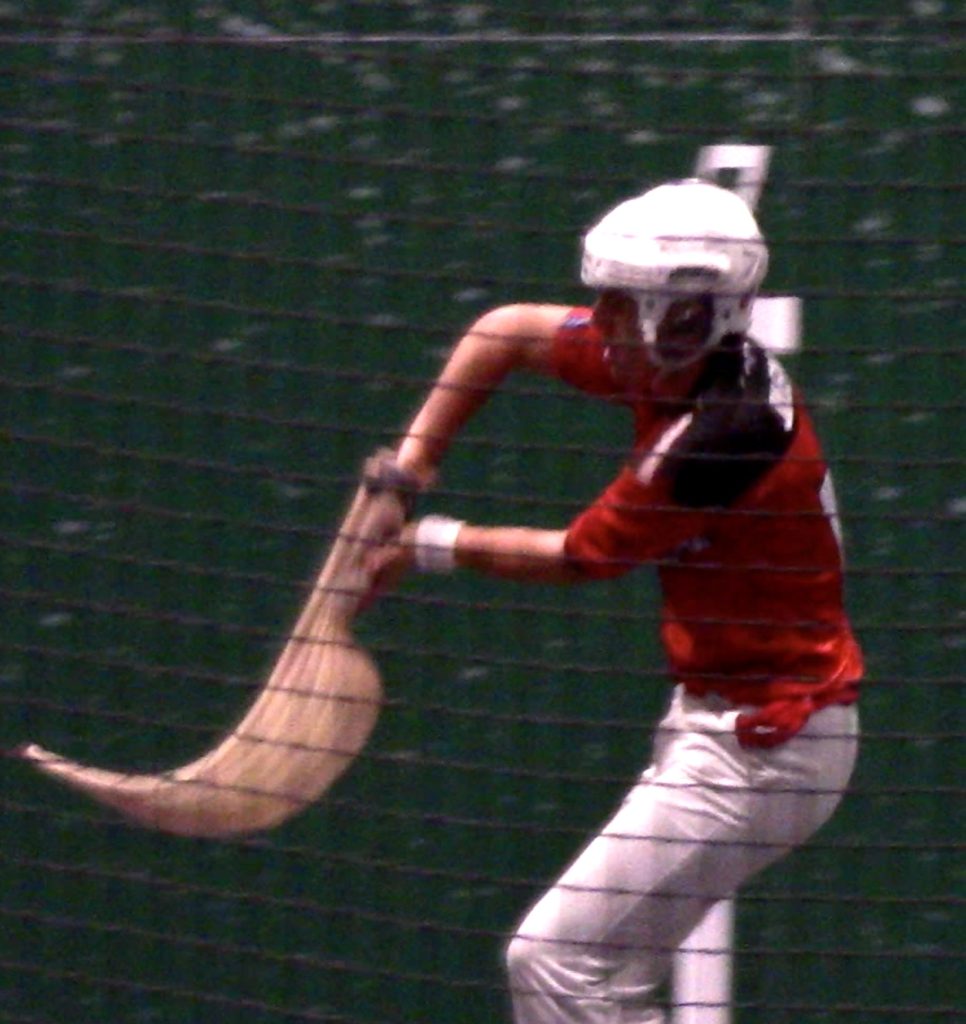Chris Bueno is about to catch a rubber ball flying at a speed of 170 miles per hour with a wicker basket called a “cesta” attached to his arm. He is playing jai alai at the Magic City Casino, the last place in North America where the sport is played professionally year-round.
“The ownership and the management of the casino promote the sport and back us up,” said Chris Bueno, part of the Magic City Jai-Alai roster of 28 players. “This is something that has been missing in jai alai for as long as I can remember.”

The game is played in a court called a “fronton,” and the only other one in the United States closed its doors in November due to the sport’s decline. The fate of this traditional game tied to the Basque region of Spain and France rests on the shoulder of this last open fronton.
Jai alai, which originated in the Basque Country, was introduced in South Florida in 1924 and has been played exclusively in Miami since 2003. The sport came to the United States with the waves of Basque immigrants who arrived in the country looking for a better life.
These Basque arrivals settled mainly on the West Coast, but some came to Miami and brought jai alai with them. Soon, the sport gained popularity in the world of gambling.
Players were a mix of Basques and locals who shared the court in competitions and teams. However, the success of the sport in Florida declined in the Eighties and Nineties causing the closure of almost all the 10 active frontons. Magic City is the only fronton where jai alai is played regularly. The fronton at the Dania Beach Casino closed last November, although the facility is hosting a two-month tournament from Dec. 1, 2022, through Jan. 27, 2023.
The rules of the game are simple, similar to racquetball. The court has three walls: front, left side and back. The player throws the ball against the front wall, and the other player must catch the ball and throw it back in the air before or just after the first bounce. If he doesn’t do it, the player who threw the ball gets the point.
The game has faced format changes: there are new viewing platforms and more gambling opportunities. The audience can bet online and use streaming services to watch the games. The aim is to preserve the sport and encourage its growth.
“More people are starting to come to the games, it is getting more popular,” said Julen Goitiandia who came to play jai alai in Miami from the Basque Country, a region located in the north of the Iberian Peninsula between France and Spain where a language called Basque is spoken.
Magic City, which started hosting jai alai in 2018, has used social media to attract fans and change the format of the game.
“It is jai alai, but it is a different modality; the court is different, the wall is not concrete, and the ball is smaller,” said Goitiandia.
Together with his brother, Inaki Goitiandia, he is part of a family that immigrated to the U.S. to play professional jai alai. Following the path of his grandfather, father, and brother, he is now part of the roster after deciding to leave his homeland and settle in Miami four years ago.
Magic City Jai-Alai introduced new ways to watch the game and added new streaming options to help the revival of the sport.
“We are breaking new walls down and we are going through different avenues we have never been before,” said Bueno.
As well as social media engagement via Tik Tok with more than 139,000 followers, fans can watch games through www.watchjaialai.com, ESPN and LaLiga Sports among other platforms or with the app “Jai-Alai”.
According to the casino, these partnerships reach an audience of 115 million households. In collaboration with BetRivers, an online sportsbook operator, 2022 season games are licensed in seven states for wagering, one of the sport’s main revenue streams.
“They are doing a great job with social media and now it is also possible to bet online,” said Goitiandia.
Bueno and Gotiandia were virtually born with a “cesta” tied to their wrists, but more than 3,400 miles away. Goitiandia grew up in the Basque Country surrounded by a family tradition and Bueno in Miami, close to the American hub of the Basque heritage.
Bueno grew up watching his father, Benny Bueno, become one of the best players in competitive jai alai frontons playing in front of full-houses. Now, they are both a part of the last jai alai professional players roster in North America, but they feel confident about the future.
“It is an exclusive place now, the only fronton where you can come to watch jai alai,” said Bueno, “as far as the future goes, I am excited.”
As they near the end of the season, the players continue to work hard and are optimistic about the future of the sport. Contrary to other frontons, the unwavering support of the Magic City Casino has paved the way to a promising 2023.
“Players have always been enthusiastic and competitive, but the management and the ownership have never really backed the sport. Being part of the growth of the sport and the roster of Magic City Jai-Alai makes me very proud,” said Bueno.
































